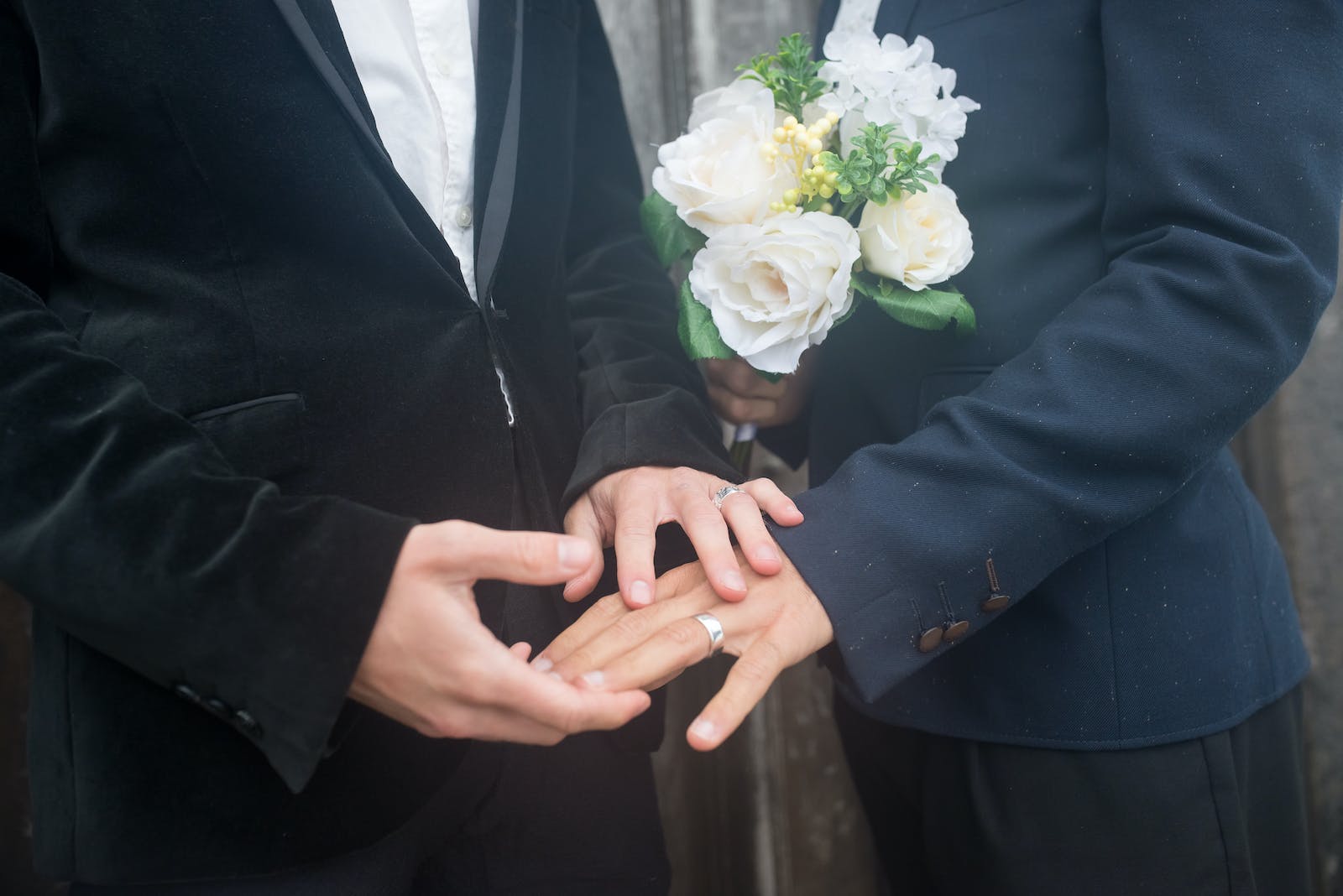For Now, We Celebrate
Respect for Marriage Act Gives Us All the Freedom to Marry the One We Love

Twenty years ago, I was a field organizer in the Oregon marriage campaigns. I remember a team of volunteers coming back from knocking on doors, wide-eyed and breathing hard as they told the story of being chased from a voter’s property with a shotgun after disclosing that they were there to talk about same-sex marriage. As a young lawyer, I had studied contracts and constitutions, but as an organizer, I had a front row seat to the deep emotional connection that people had to the idea of marriage.
Marriage is not just one thing. It’s a contract. A complicated agreement between not only the partners, but the state as well. An agreement that allows — and guarantees — rights to flow from the state to the couple and its members. That’s why we’re talking about legal recognition in the first place. It’s also a meaningful, public demonstration of the love between two people. For many, it represents the validation of a couple’s union, and an ideal to which many aspire. Both of these things are important, and the combination makes marriage a talisman — something both proponents and opponents of same-sex marriage hold close to as a proxy for acceptance and protection, if not equality.
I remember the day after we lost marriage in Oregon. I remember driving up the I-5 corridor on a crystal-clear day, looking at incredibly beautiful mountains, and having a moment where I realized that the people around me — the majority of the people in the state — didn’t think that I could or should experience joy or happiness because of who I loved.
The complexities of constitutional law, and the intricacies of third-party contracts are one thing, but the impact of understanding — truly understanding — that you are protected and valued is quite another.
This week, Congress passed the Respect for Marriage Act. That is something to celebrate. The Respect for Marriage Act is historic in its scope and in its bipartisan support for the LGBTQ+ community. It’s a protective measure, designed to spring into place if the U.S. Supreme Court decides to overturn the Obergefell decision, which made same-sex marriage the law of the land across all of the United States in 2015.
While it’s limited by the complexities of the U.S. Constitution, what the Respect for Marriage Act can, and does, do is require states to recognize marriages that happen in other states, meaning that so long as a marriage takes place in a state where it’s legal, all other states have to recognize it. What it doesn’t do is require all states to allow same-sex marriages to take place within their borders.
Twenty years ago, I watched what happened when a state went from issuing marriage licenses to same-sex couples, to issuing refunds for marriage license fees. More than 3,000 same-sex couples who had been married received refund checks in the mail for the $60 marriage license fee as their marriage certificate became nothing but a piece of paper.
The Respect for Marriage Act goes a long way toward protecting the tens of thousands of married same-sex and interracial couples in our country — and the untold others who have planned their lives around the freedom to marry the person they love. That is a good thing. It also signals that our Members of Congress are willing to protect LGBTQ+ people — something especially encouraging since there is another bill, the Equality Act, that has been passed by the House and is waiting in the Senate. The Equality Act would go even further, providing federal non-discrimination protection in education, housing, health care, and more.
This week, Congress passed the Respect for Marriage Act, and within days, the President will sign it into law. As someone who has been in the fight for marriage equality for two decades, I’ll count this as cause to celebrate, but none of us should consider it the end.
Kristin Flickinger is the executive director of Pacific Pride Foundation. She has more than 20 years of experience in the LGBTQ+ movement and studied law and government at Willamette University College of Law.



